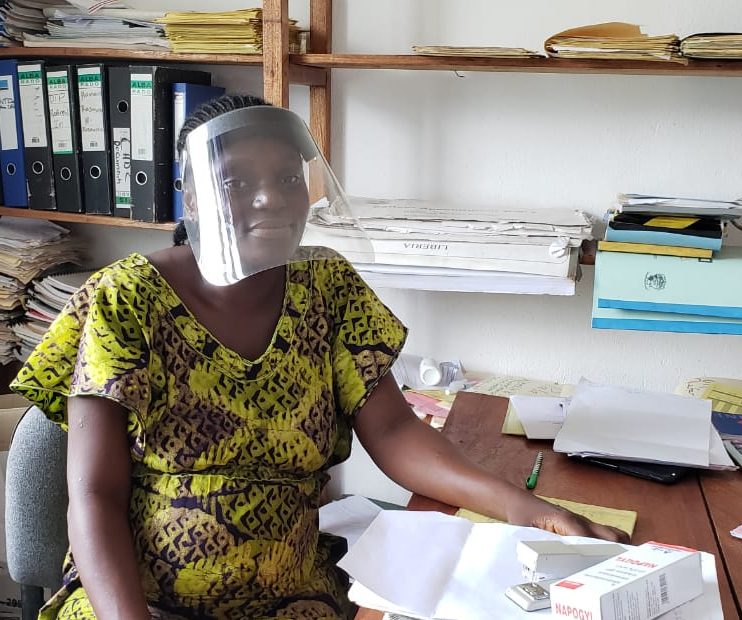Testing Integrated Approaches to Address NTDs in Liberia
Feb 12, 2021
One of the many reasons neglected tropical diseases (NTDs) are “neglected” is that people affected by these diseases are often invisible to their local health systems.
Many people affected by NTDs don’t have easy access to a healthcare facility. Some seek treatment outside the health system and others are afraid of stigma they could encounter. For these reasons and more, case finding for NTDs remains a challenge, while delayed identification and treatment lead to lifelong consequences.
The AIM Initiative, a program of American Leprosy Missions, is taking on this challenge in Liberia with an integrated approach to improve case finding, identification, and access to morbidity management and disability prevention (MMDP) services.
Integrated approaches are often presented as solutions for NTDs management without enough evidence on efficacy. In this project, funded by the Coalition for Operational Research on Neglected Tropical Diseases (COR-NTD), we collaborate with the Liverpool School of Tropical Medicine, UL-PIRE Africa and the NTDs Program in Liberia’s Ministry of Health to research the efficacy of four integrated models. These models encompass identification, referral and confirmation for MMDP cases of lymphatic filariasis (LF), leprosy, Buruli ulcer and yaws.
First, all the models were used during the initial NTDs case management strategy implementation in five of Liberia’s fifteen counties. Next, our project team has been evaluating the models’ performance. Based on the initial results, we developed an optimal model that’s now a pilot in Bong county.
This model includes more comprehensive training on NTDs for local healthcare practitioners, as well as a community health worker (CHW) program to better find and monitor cases of NTDs. Gertrude’s story illustrates how both these aspects are making a difference in Bong county communities.
Health Workers Confront NTDs
Registered nurse Gertrude Kollie serves as doctor, administrator and pharmacist at the Palala Clinic in the Kpaii district of Bong County. It’s not unusual for a clinic’s Officer in Charge (OIC) to be a nurse, especially in rural areas, since Liberia has few doctors to serve its 4.6 million people (WHO reported 168 in 2015). As the OIC at Palala for the past two years, Gertrude oversees the facility’s daily operations and diagnoses the patients. She participated in a recent health worker training created by the project so she could learn more about NTDs. During the training, Gertrude was surprised to learn that there are people living with leprosy, Buruli ulcer (BU), lymphatic filariasis (LF) and other NTDs in Liberia. In nursing school, she explained, these diseases were mentioned briefly, as if they didn’t exist. Students didn’t receive information on the diagnosis and management of NTDs.
Gertrude Kollie is a registered nurse and the Officer in Charge at Palala Clinic in Bong County. She participated in our project’s NTD training for healthcare practitioners.
Looking back, Gertrude realizes she’s actually seen many patients with BU or LF, but at the time she didn’t have the tools and knowledge to provide an accurate diagnosis.
Thanks to the training, Gertrude and other practitioners know how to diagnose, manage and report NTDs. Gertrude also coaches and supervises seven community health workers (CHWs) who conduct home visits to identify NTD cases in Gertrude’s health area of 10,000 people. Once patients are referred to Palala Clinic by the CHWs, Gertrude can diagnose them and manage their treatment. Gertrude and the CHWs are promoting early diagnosis of NTDs, thus preventing disability.
Although Gertrude enjoys her work, she has to deal with medicine and supply shortages. Those shortages mean delayed treatment for many BU and leprosy patients, which degrades trust in health workers and discourages others from seeking care. Gertrude hopes the shortages can be resolved so every NTD patient at Palala Clinic receives the care they need to recover and thrive.
A Way Forward
This new pilot program makes it possible to detect and refer NTD cases earlier, addressing issues of healthcare access and preventing disability. With better case finding tools and MMDP services, healthcare providers like Gertrude can more effectively treat NTDs and prevent lifelong consequences like disability. As our project seeks to identify the most effective MMDP model for Liberia’s NTD Program, the pilot program helps create a proven foundation to implement and scale up an integrated model. We’re proud to contribute to an endeavor with the potential to positively impact people affected by NTDs in Liberia.Funding
This project—Identifying the optimal delivery model for the identification, confirmation and referral of NTD cases requiring MMDP services within an integrated health systems approach to NTD care in Liberia—received financial support from the Coalition for Operational Research on Neglected Tropical Diseases (COR-NTD), which is funded at The Task Force for Global Health primarily by the Bill & Melinda Gates Foundation, by the UK aid from the British government, and by the United States Agency for International Development through its Neglected Tropical Diseases Program.
